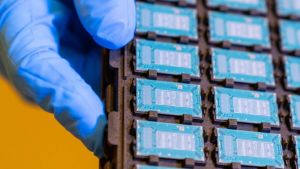Bionic Bodies are Coming : 3 Smart Apps that Bring Us One Step Closer
![]() The human body is a complex system made up of various components that work together to be able to function smoothly. If one of the components or organs fail, there are medical procedures to help. People undergo surgery, succumb to cocktails of medications and even intense therapy to recover. But what if all these traditional treatments fail to do their purpose? Are people just supposed to accept that they are doomed?
The human body is a complex system made up of various components that work together to be able to function smoothly. If one of the components or organs fail, there are medical procedures to help. People undergo surgery, succumb to cocktails of medications and even intense therapy to recover. But what if all these traditional treatments fail to do their purpose? Are people just supposed to accept that they are doomed?
Don’t worry, Dr. Technology will come to save the day! Here’s the latest developments in the connected device world that pertain specifically to health and fitness.
i-limb Ultra
Touch Bionics has developed a prosthetic hand that is able to function like a normal hand, doing things such as picking up a piece of paper, holding a coin between the thumb and forefinger, tying shoe laces and other fine motor skill activities, all via an iPhone app.
“We believe that the i-limb ultra revolution, with powered thumb rotation and the ability to quickly access multiple grip patterns, offers unparalleled dexterity and control, enabling wearers to more easily perform activities of daily living and thus increase their quality of life,” Ian Stevens, SEO of Touch Bionics said.
Patrick Kane, a 16-year old boy from the UK, is the first person fitted with the device. When Kane was still a baby, he lost his left hand, part of the fingers on his right hand and his right leg below the knee due to meningococcal septicaemia. Now, he is able to do normal activities with ease because of the iPhone-controlled prosthesis.
Smart insulin nanoparticles
Currently, there are apps that help diabetics monitor their insulin levels. The beauty of these apps is that it eliminates the need for notebooks or diaries where people jot down their levels. There’s also an app that comes with a physical attachment where people put their blood sample to read blood glucose levels. Nifty right? But they still require the individual to do much of the work, they just help you monitor your blood glucose and insulin levels.
What if there’s a way for insulin-dependent diabetics to live life without having to worry about monitoring all of this because it’s done for them? It only requires a once-a-week injection of nanoparticles.
Thanks to the efforts of the people from the North Carolina State University, the University of North Carolina at Chapel Hill, the Massachusetts Institute of Technology and Children’s Hospital Boston, they were able to develop a system that will help insulin-dependent diabetics better manage their conditions with less effort.
“We’ve created a ‘smart’ system that is injected into the body and responds to changes in blood sugar by releasing insulin, effectively controlling blood-sugar levels,” says NC State University biomedical engineering assistant professor Dr. Zhen Gu, the lead author of a paper describing the work (via NC State news). ”We’ve tested the technology in mice, and one injection was able to maintain blood sugar levels in the normal range for up to 10 days.”
Though this medical breakthrough is a welcomed news to diabetics, it’s not yet ready. The team has to perform human trials to make sure that it will deliver the same or better effects compared to animal testing.
Chip to detect heart attacks
A team of scientists from the Swiss Federal Institute of Technology in Lausanne, Switzerland has developed an implantable medical chip that can detect a heart attack three to four hours before the event actually happens.
The “IronIC system” is 14-millimeter long chip that measures molecules in the bloodstream, specifically troponin, which is released when the heart starts malfunctioning, about three to four hours before the attack actually happens. The result is then transmitted to a smartphone or tablet app, via a Bluetooth connection, which alerts the person of the presence of troponin in the bloodstream. This will give the person ample time to seek medical attention and prevent impending doom.
“There is a molecule called troponin that is released by the heart muscle just three to four hours before the heart attack, once the heart muscle starts malfunctioning,” wrote Sandro Carrara, one of the leaders of a team at the Swiss Federal Institute of Technology in Lausanne (EPFL). “Our system could detect this molecule three/four hours in advance of the fatal event.”
The advancements in medical technology are truly astounding. We’re moving towards the era of bionic beings becoming a reality. Some religious sects would argue that these innovations are an abomination, but if we truly value life, we can’t help it if people work on inventions that would help prolong the precious lives we have.
A message from John Furrier, co-founder of SiliconANGLE:
Your vote of support is important to us and it helps us keep the content FREE.
One click below supports our mission to provide free, deep, and relevant content.
Join our community on YouTube
Join the community that includes more than 15,000 #CubeAlumni experts, including Amazon.com CEO Andy Jassy, Dell Technologies founder and CEO Michael Dell, Intel CEO Pat Gelsinger, and many more luminaries and experts.
THANK YOU



















